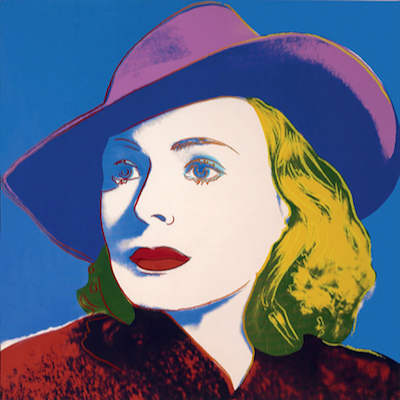



Keith Haring Table Lamp, 1988
- Pouces
- Centimètres
- USD
- EUR
- GBP
- Ajouté Récemment
- Prix (elevé - bas )
- Prix (bas - elevé )
- Année (elevé - bas )
- Année (bas - elevé )
Keith Haring
Untitled (Plate 16) From The Blueprint Drawings, 1990
Édition Limitée
Sérigraphie (Screen-print)
USD 35,000 - 45,000
Keith Haring
Untitled (Plate 17) From The Blueprint Drawings, 1990
Édition Limitée
Sérigraphie (Screen-print)
USD 35,000 - 45,000
Keith Haring
Untitled (Cup Man), 1989
Édition Limitée
Sérigraphie (Screen-print)
USD 90,000 - 120,000
Keith Haring
Icons (B) - Barking Dog, 1990
Édition Limitée
Sérigraphie/Silkscreen
USD 55,000 - 65,000
Keith Haring
Icons (A) - Radiant Baby, 1990
Édition Limitée
Sérigraphie/Silkscreen
USD 55,000 - 70,000
Keith Haring
Plate 7 (from The Story Of Red + Blue), 1989
Édition Limitée
Sérigraphie (Screen-print)
Demander Le Prix
Keith Haring
Flowers III (Yellow), 1990
Édition Limitée
Sérigraphie (Screen-print)
USD 45,000 - 55,000
Keith Haring
Untitled (Plate 6) From The Blueprint Drawings, 1990
Édition Limitée
Sérigraphie (Screen-print)
USD 35,000 - 45,000
Keith Haring
Untitled 1 (from Free South Africa), 1985
Édition Limitée
Lithographie
Demander Le Prix
Keith Haring
Pop Shop IV (plate III), 1988
Édition Limitée
Sérigraphie (Screen-print)
Actuellement Indisponible
Keith Haring
Untitled - Scissors (from Pop Shop III), 1989
Édition Limitée
Sérigraphie (Screen-print)
Actuellement Indisponible
Keith Haring
Untitled (Plate 5) From The Blueprint Drawings, 1990
Édition Limitée
Sérigraphie (Screen-print)
Actuellement Indisponible
Keith Haring
Untitled (Plate 4) From The Blueprint Drawings, 1990
Édition Limitée
Sérigraphie (Screen-print)
Actuellement Indisponible
Chercher une oeuvre d’art de Keith Haring
Si vous recherchez une pièce spécifique de Keith Haring, faites-le nous savoir et nous explorerons notre réseau pour trouver des correspondances. Notre objectif est de vous aider à découvrir des œuvres d'art qui correspondent à vos intérêts.
Qu'est-ce que le pop-art?
Pop Art est un mouvement artistique qui a débuté en Grande-Bretagne en 1955 et à la fin des années 1950 aux États-Unis. Il a défié la tradition des beaux-arts en intégrant des images de la culture populaire, telles que les actualités, la publicité et les bandes dessinées. Le Pop Art isole souvent des matériaux et les recontextualise, les combinant avec des éléments non liés. Ce mouvement se concentre davantage sur les attitudes et les idées qui l'ont inspiré que sur l'art lui-même. Le Pop Art est interprété comme une réaction aux idées dominantes de l'expressionnisme abstrait, en intégrant la culture de consommation quotidienne dans le domaine des beaux-arts.















































































